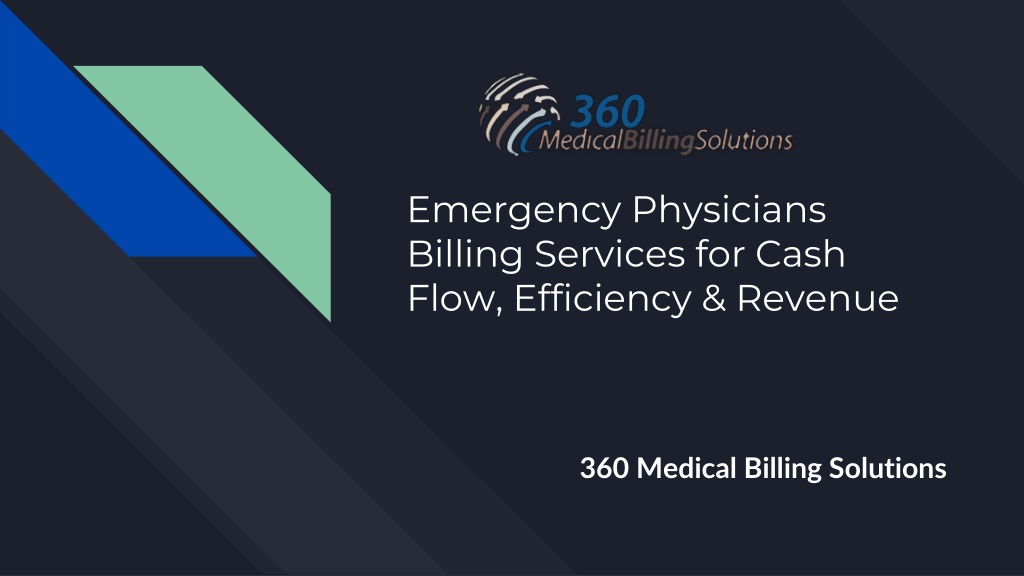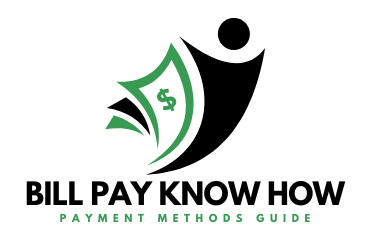If you’ve recently received emergency medical care, you likely incurred a bill from the physician group that staffed the emergency department. Emergency physician group bills can be confusing with unfamiliar codes, vague insurance details, and short payment deadlines. Don’t panic – this guide covers everything you need to know about interpreting, managing, and paying your emergency physician group bill.
Understanding Emergency Physician Group Billing
Emergency physician groups contract with hospitals to staff their emergency departments. The physicians who treat you in the ER typically work for one of these contracted groups, not the hospital itself. That’s why you’ll receive a separate bill from the emergency physician group in addition to the facility bill from the hospital.
It’s standard practice for the emergency physician group to bill you directly for their professional services. This is separate from the hospital fees for supplies, medications, room charges, labs, imaging, etc. Both bills need to be paid – one does not cover the other.
Expect to receive the emergency physician bill a few weeks after your visit. It may arrive before or after the hospital bill The physician bill is usually 1-2 pages detailing the specific services provided and any codes related to your diagnosis
Checking Your Insurance Coverage
The first step upon receiving an emergency physician bill is to verify how your insurance covers these services. Call the number on the back of your insurance card and provide details from the bill – the physician/group name, Tax ID#, dates of service, and billing codes
Your insurance will confirm if the emergency physician group is in-network or out-of-network, In-network means lower out-of-pocket costs for you Out-of-network could result in higher costs or rejected coverage
If the physician is out-of-network, ask your insurance about “surprise billing” protections that may limit your costs. Also inquire whether the insurer will pay any portion of an out-of-network physician bill from the ER.
Document name of the representative, date, time, and a summary of benefits explained. You need these details to appeal if there are any billing issues later.
Reviewing the Bill for Accuracy
Once you clarify your insurance coverage, conduct a line-by-line review of your emergency physician bill to ensure there are no errors:
-
Verify your personal details – full name, birthdate, home address.
-
Check the date of service matches when you visited the ER.
-
Confirm the name of the physician who treated you.
-
Check that all diagnosis codes relate to your symptoms/condition.
-
Only treatment/procedure codes for services performed should be listed.
-
Make sure labs, medications, imaging etc. are not included, just the physician services.
If you find any incorrect details, immediately contact the billing department listed on the bill. Get inaccurate information corrected before paying.
Options for Paying Your Emergency Physician Bill
You have several options when it comes time to pay your emergency physician bill:
Pay the bill directly – Mail a check or pay with a credit/debit card by phone or the billing company’s online portal if available. Ask about discounts for paying the entire balance. Get receipts for your records.
Set up a payment plan – If the balance is too high to pay all at once, call the billing department to set up monthly installment payments. There may be fees for payment plans.
Negotiate discounts – Ask about any prompt-pay discounts or offer a lump sum lower than the full amount. Many will negotiate rather than send unpaid bills to collections.
Apply for financial assistance – If facing significant hardship, contact the billing group to ask about financial assistance or charity care programs that may discount or forgive your emergency physician bill.
Let insurance pay – If in-network and insurance is covering some costs, the insurer will pay their portion and bill you for copays/deductibles/coinsurance.
Dispute errors – Formally contest any inaccuracies in writing with documentation. This pauses collections activities until resolved.
Prioritize getting your emergency physician bill paid or addressed quickly, as unpaid debts can negatively impact your credit history.
Questions to Ask the Billing Department
When you contact the emergency physician billing department, have these questions ready to ensure you understand the full payment context:
-
Is there an original itemized bill I can receive?
-
What is the statute of limitations for collecting this debt?
-
Are there any outstanding provider charges not on this bill?
-
Do I have to pay the full amount at once or can I make monthly payments?
-
Are there any discounts for paying quickly or paying cash?
-
Will you negotiate a lower payoff amount?
-
How much will I owe once my insurance processes their portion?
-
Is financial assistance available if I can’t afford to pay?
-
What happens if I don’t pay this bill?
Document all responses you receive. Don’t hesitate to call back and speak to a supervisor if the person cannot or will not answer your questions clearly.
Appealing the Bill with Your Insurer
If your insurance denies coverage for an out-of-network emergency physician, all is not lost. You have the right to appeal the decision and request the insurer reprocess the claim. Follow these steps:
Review your explanation of benefits – Understand exactly why the claim was denied by your insurance provider. Look for codes indicating it’s out-of-network.
Gather supporting documents – Include copies of the bill, your medical records from the ER visit, and documentation of your appeal request.
Submit a written appeal letter – State clearly that you are appealing the specific claim denial. Provide details of the date, providers, and services. Explain why you believe your insurance should cover the physician costs. Politely request the claim be re-evaluated and paid appropriately based on your policy.
Include contact information – Provide phone number, mailing address, and email in case the insurer needs additional information for the appeal.
Send appeal to insurance – Submit the appeal documents to the address or department indicated in your denial paperwork. Certified mail provides delivery confirmation.
Follow up if necessary – If you don’t hear back from the insurer within 30 days, call to check the appeal status. Politely but firmly push for a resolution.
With an organized appeal documenting the billing details, you have a strong chance of the insurer reversing the original denial and providing coverage. Don’t take no for an answer!
Negotiating a Lower Emergency Physician Bill
If facing extensive medical expenses, negotiating directly with emergency physician groups can significantly reduce your out-of-pocket costs. Use these proven tips to negotiate your bill down as much as possible:
Do your homework – Research typical costs for the treatment you received so you can counter inflated charges. Reference Medicare rates as well.
Offer a lump sum – Propose paying a lower, one-time fixed amount instead of the full balance. Many providers prefer immediate lump sums over prolonged payment plans.
Mention financial hardship – Explain if covering these medical costs requires cutting back on food, utilities, or other necessities without elaborating in great detail.
Ask about discounts – Inquire specifically what discounts, reductions, or write-offs the physician group can offer. Don’t just generally request a lower price.
Get alternatives in writing – Have the billing department email or mail you a written confirmation of any revised payment offers before accepting.
Express appreciation – Thank the billing agent sincerely for their time and assistance in addressing your concerns. Kindness goes a long way.
With flexible payment options, most emergency physician groups will work with you on settling outstanding debts for significantly less than billed charges.
Avoiding Emergency Room Physician Bills Altogether
The best way to avoid pricey emergency physician bills is to reduce unnecessary ER visits. Use these tips to prevent needs for emergency care:
-
Maintain relationships with primary care doctors who can treat most illnesses and injuries.
-
Know the operating hours, locations, and services of urgent care clinics to utilize for non-emergencies.
-
Keep a well-stocked home medicine cabinet with supplies for minor issues.
-
Follow preventative care schedules to stay on top of medications, immunizations, and checkups.
-
Make lifestyle choices to stay physically and mentally healthy through diet, exercise, sleep, etc.
-
Learn health literacy skills to make informed medical decisions and care for your family.
-
Know how to recognize true emergencies such as chest pain, head injuries, severe bleeding, and difficulty breathing.
Staying healthy and minimizing hospital visits allows you to avoid the billing complexities and medical costs of emergency care altogether!
Questions to Ask Before an ER Visit
If an emergency room visit can’t be prevented, ask these key questions before receiving services to avoid surprise physician bills:
-
Which emergency physicians are in my insurance network at this hospital?
-
Will I be treated by out-of-network emergency doctors?
-
What happens if in-network doctors aren’t available when I arrive?
-
Can I request only in-network physicians handle my care?
-
How much will I owe for the emergency physician services?
-
Is this hospital able to share pricing information upfront?
-
Can you provide the charges for

Understanding Your Bill from EPPA
Emergency care often requires multiple resources. Your bill from EPPA is for the provider who you saw during your visit to a hospital emergency department. Because our providers are independent from the hospital you will receive a separate bill from us for your provider services. Click Here to view the hospital locations where you will find EPPA providers.
We know visiting an emergency department can be scary and is most often unplanned. We’re here to ensure your experience with your healthcare provider meets and exceeds your expectations. At EPPA, we are committed to the patients and communities we serve.
We want to make it easy for you to view your statement, pay your bill or set up a payment plan. If you have questions, we’re here to help.
My ER Doctor Is Billing Me For What Insurance Didn’t Pay, What Can I Do?
FAQ
What is bill pay group?
What is included in my emergency care bill from Eppa?
Your bill from EPPA is for the healthcare provider(s) you saw in the emergency department. Charges from the hospital and other services you may have received are billed separately and are not included in your bill from EPPA. Patient Services Portal Contact Us By Phone Billing FAQs
What are the charges on my patient bill?
The total charges on your patient bill reflect the actual services that you receive. These charges can vary based on several factors, including your length of stay, the time it takes to complete your procedure, medications you receive, and other health conditions that could make your care more complicated.
What do I need to know about ECMC’s billing practice?
Find out everything you need to know about ECMC’s billing practice, including our out-of-network disclosure and price transparency. For questions regarding your bill or to make payment arrangements please contact (716) 898-3173. If you do not have health insurance, you may be eligible for financial assistance in paying your hospital bills.
Who do I contact if I need help paying my medical bills?
If you have any questions, please contact our office at 716-898-3173. While we make every effort to keep costs as low as possible, some people may need assistance when it comes to paying medical bills. Find out how we can help.
Is EPPA’s billing separate?
EPPA’s billing is separate because we are not hospital employees. Your bill from EPPA is for the doctor/provider you saw during your visit to the emergency department.
How do I contact healthcare billing?
Contact us at 888-580-2688 or chat with us for any bill related inquiries. In these tough times, patient safety is our utmost priority. Our hearts go out to those affected by the recent natural disaster. We’re here to help with healthcare billing concerns. Contact us at 888-580-2688 or chat with us for any bill related inquiries. Simplify.
